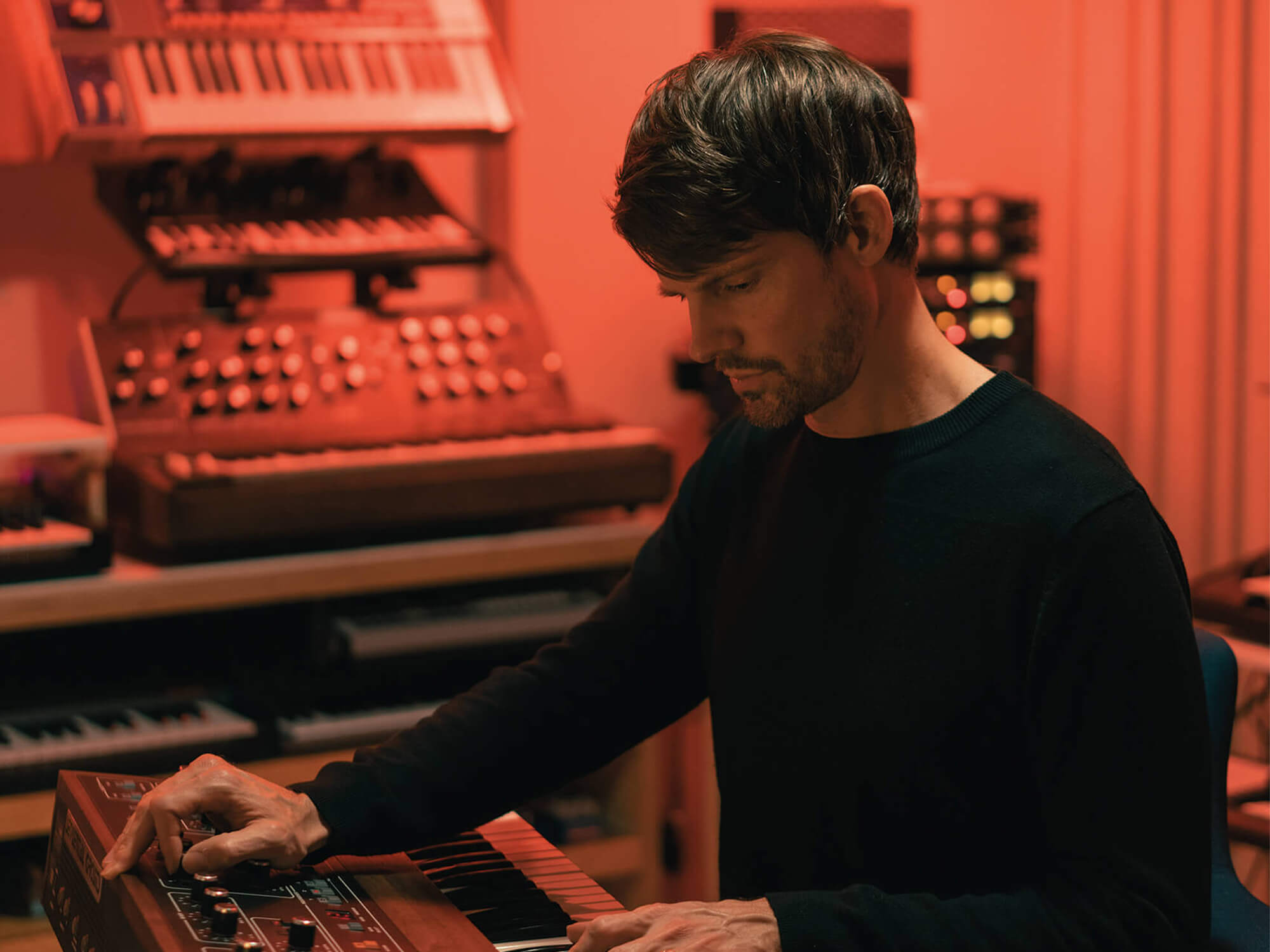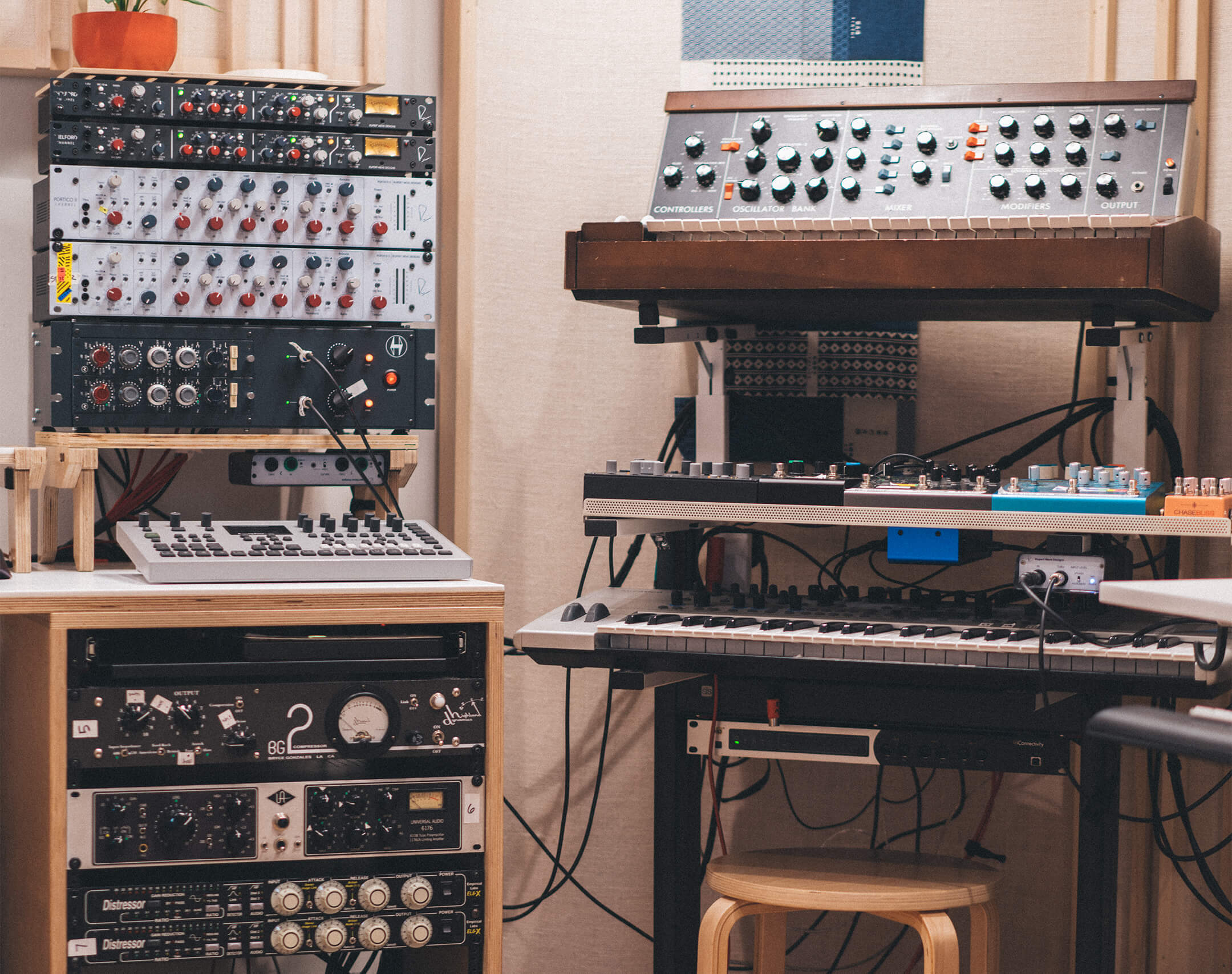
Tycho’s $160,000 studio collection is flying off Reverb’s shelves: Why he’s selling and what to expect from his 2024 album
Scott Hansen talks plugins, collaborating with wunderkind Kaelin Ellis, and letting go of treasured gear.
Image: Tycho for MusicTech
Don’t worry, synth nerds and gearheads. Tycho has a dangerous lust for vintage and extravagant music equipment, too. But the esteemed electronica producer, real name Scott Hansen, is being bold: he’s listing over 100 pieces of his studio treasures on Reverb.com from today (20 Sept). Why? Is he retiring from music-making after 25 years in the game? Not even close. He just wants to give these coveted artefacts a better home.
“I started to get this weird sense of guilt,” Hansen says from his California studio. “Like, I’m sitting here on this amazing thing that somebody could put to use and do something awesome with. Instead, it’s sitting in a closet, decaying away.”
Sadly, he’s not giving them away for free. The collection of alluring hardware – from synths such as the Korg Trident, Sequential Prophet 5, and Moog Voyager to outboard like his beloved Ursa Major Stargate 626 reverb and Roland RE-201 Space Echo – totals more than $160,000. That also includes the $30,000 Oberheim FVS-1 and $15,000 Neve 84 mixer. These were all used on his seminal albums: 2011’s Dive, 2014’s Awake, and 2017’s Grammy-nominated Epoch. And, at the time of writing, he’s already sold over 30 pieces of gear.

It’s not like he won’t miss these musical companions. But in creating his upcoming album, which he tells us is set for release in Spring 2024, Hansen realised that his sonic palette is now “limitless” after diving even deeper into plugins and software.
“There’s just so many options,” he says. “And I’m definitely a plugin junkie; my gear lust has switched from hardware to software. I’ve used a lot of software in the past; it’s not like I just started using software instruments. But I force myself to…if there’s a software equivalent of a tool or an instrument, I’m going to use that instead of the hardware, no matter what.”
Despite Hansen’s favourite instrument being his Minimoog, for example, he’s found himself using Universal Audio’s version more than the real thing. “That’s the sad thing – Universal Audio came out with its Minimoog emulation and, it’s sacrilege to say it but, I like it more. It ended up serving me well on this record.”
Don’t be fooled, though – there’s no way he’s giving up his Minimoog. “No, absolutely not,” he says with a chuckle. “I don’t care if I never use it again. It’s too sentimental.”
With so much hardware and software he’s racked up, we wonder how the producer decides what gear to invest in next. “I’m always just looking for the Holy Grail of sound or something,” he laughs. “[The gear] is either a shortcut to the sound that I want or it can make a sound that I’ve never heard anywhere else.
“I was never a musician,” Hansen continues. “I came to music through musical equipment. I could probably be pretty fulfilled just messing around with gear and never finishing a song. If I didn’t have to for my job, you know?”
Thankfully, Hansen is clearly capable of finishing tracks and albums. With the cult success of his ever-replayable albums, fans are sure to be stoked for new music in 2024. After his 2020 album Simulcast, Tycho moved studio and his workflow changed with so much of his gear going into storage.
“I wanted this album to be flexible in the mix stages. I was always limited by the decisions I made in the moment with hardware equipment,” explains Hansen.
“I’ve finally got around to learning ReaLearn, which is an add-on script in Reaper, for super-deep integration with plugins and controllers. And so it gives you this ability to have a Minimoog [plugin] and really feel the tactile experience of playing when it’s actually software and a controller.”
Hansen says he got a “ton of new plugins” since Simulcast, after being a little “out of the loop” on which ones were worth copping.
“It felt like something major happened between, like, 2015 and 2020, where plugins finally made it to the point where it’s like…Man, if you can hear the difference between a software emulation and the hardware, good for you,” Hansen says. “But this isn’t about the sound anymore. They did it. The argument of sound is over, it’s just more about workflow. So that was when I was like, ‘Well, I don’t care because I love working with computers. And I’m not old-school where I need to be turning all these knobs.’
“So it was just about using as many plugins as I could and figuring out which developers I liked,” he continues. “Now, when I look at plugins, the only thing I’m looking for is a novel approach or a sound that I can’t get anywhere else. Ujam’s stuff is interesting because their plugins sound like nothing I’ve ever heard and that’s compelling to me. But do we need another Roland Juno emulation? Like, Softube’s Model 84 – that’s it! I don’t need another one.”
Alongside new gear and processes comes new collaborators, too. The album’s lead single, Time To Run, comes with an unexpected new collab partner. “The impetus for that song was this drum part by [producer, multi-instrumentalist and streamer] Kaelin Ellis. I just got really into his drumming, so I worked with him on the drums for [Time To Run]. And he has this like, looser style; I’m used to rigid rhythmic structures I’ve been doing in the past, and more like indie-rock-type drums. So it’s cool to work with a different kind of pattern.”
As it happens, Reverb.com also lent a hand in introducing Ellis to Tycho. Hansen and Reverb had been discussing the gear sale for almost three years, developing a pretty close relationship. Separately, the marketplace was planning to create a video to promote the sale of a Minimoog reissue and found Hansen and Ellis as the perfect candidates.
“Reverb wanted to bring somebody who was using a Minimoog clone into my studio, where I had a real Minimoog, and just like, show them around the real thing and have them play it. And that was Kaelin. I didn’t even know him!
“So they had him come out and we just connected that day. And I was like, ‘Man, I’m working on this album. Why don’t you come back out to my studio?’ And he did. So yeah, that was really cool.”
According to Hansen, though he keeps the album’s details close to his chest, the material can be categorised into sets of three. “I’d say there’s a set of three songs that kind of live in the same space as Time To Run. There are three songs that live in darker [space], like if we kept doing stuff like Epoch, and then there’s some very Tycho original, kind of like Dive and Past Is Prologue era stuff. It feels like it’s a nice balance of stuff from different eras. But it all feels evolved.”
Until then, we wonder how he’s going to feel when his cherished studio gear goes into new studios for other artists to create with. “You know, I really appreciate my time with it. And I’ll always remember it. But I think it’s time – you got to keep things fresh, you know?”
Check out the official Tycho Reverb shop.